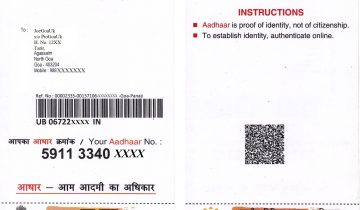Section 377: Criminalizing Love
Background
Back in December 2013 the term “Section 377” made headlines when the Supreme Court reinstated Section 377 of the Indian Penal Code. Enacted in 1860 under the colonial rule, it criminalizes “carnal intercourse against the order of nature”. Since Section 377 was vague in its definition, it became open to judicial interpretation. Even though it was equally applicable to heterosexual relations, it came to be used as an instrument by authorities to prohibit homosexual intercourse even between two consenting adults; as sexual acts for them would be non-peno-vaginal, which is essentially what Section 377 exists to outlaw. Such an order caused many LGBT activists to take to the streets in protest and social media was abuzz with eminent personalities opposing the Supreme Court’s decision.
How This Affects the Nation
The Supreme Court verdict had also allowed the legislature to amend or remove Section 377, however, the Parliament is yet to modify it in such a way that it does not criminalize gay sex. As Section 377 condemns any unnatural offence, cases of child abuse or rape against adult males are also registered under it, which is another reason for its continued existence. There is a need for specific laws dealing with molestation of men and children.
Section 377 is used to curb the rights of sexual minorities, who become victims of this obscure law. The continuation of such a law leads to a deterioration in the mental health of the population and violates individual privacy. The implications of banning gay rights are manifold. As the psychological well-being of adults goes down, so does productivity and total output of a nation. There also a direct impact on the economy, as partnerships with companies that support gay rights could be risky since opposing views may lead to unhealthy relations.
An article by the Huffington Post India talks about how Narendra Modi’s new campaign of ‘Make in India’ had him inviting pro-LGBT companies such as Apple (Tim Cook came out as gay in 2014) to set up manufacturing units in India. However, India has made its stance on LGBT issues clear (even voting against same-sex relations in the UN). Such a difference in opinions could possibly act as a deterrent to these companies wanting to expand operations to India where there is an unsafe environment for their LGBT staff.
Cause and Effect of Bigotry
Even though India is a country with a rich past and traditions, it is often held back by old schools of thought, such as those which consider homosexuality to be a sin. Acceptance of the LGBT community is still a distant dream in a country where sex education is limited to one chapter in biology textbooks. Sex, especially non-procreative sex is still a taboo topic and so homosexual intercourse makes people even more uncomfortable as it does not lead to the creation of an offspring.
Consequently, there is outright hate and violence against the existing LGBT community in India – transgender people are often mocked and ridiculed in public spaces, Gender-queer people are ostracized and disowned by their own parents, and gay people are forced to pretend to be heterosexual and married off against their will. Repressing someone’s sexual identity, coercing them to put on a façade for the sake of society or condemning those with an alternate sexuality are the real crimes, not being gay itself.
Status in Other Countries
In a larger world view, there are currently around 79 countries where homosexuality has been outlawed. Much of these are concentrated in the Asian and African continents. Even the four Asian tigers, which are a shining example of development from an economic slump, rank highly in terms of intolerance. Research has shown that in countries where someone’s religious identity takes precedence over other beliefs, support for issues like homosexuality goes down. However, this has not been the case in Philippines, where many people voted in favor of homosexuality in a survey in 2013. This means that India can retain its core religious values and still support homosexuality, without having to compromise.
New Zealand decriminalized sex between men back in 1986 and has a thriving LGBT community. The Netherlands was one of the first countries to allow same-sex marriages in 2001 and many countries such as Sweden, Argentina, Canada, Norway etc have followed its example. Closer home, even Nepal has legalized same-sex marriages. Most recently of course, the order that was greatly celebrated all across the world especially on social media – same-sex marriages becoming legal in all 50 states of the USA.
Conclusion
Homosexuality has been called everything from an “abnormal activity” to a “genetic disorder”. Such outrageous comments can no longer be allowed to be made in a country if it strives to develop. Even famous personalities such as Vikram Seth and Amitabh Bachchan have supported the LGBT community. Various journalists have reported crimes against homosexuals and brought cases into the limelight. It is extremely important that India starts to respect the choices of its people and stops outlawing acts that are clearly not offences to the country – only then can we become the great nation we’re aiming for.
[Image Attribute: Robert Couse-Baker]


